Filter by
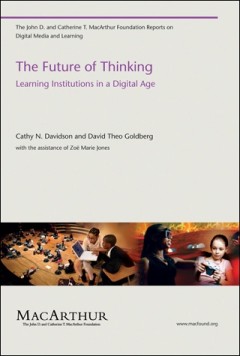
The Future of Thinking: Learning Institutions in a Digital Age
How traditional learning institutions can become as innovative, flexible, robust, and collaborative as the best social networking sites. Over the past two decades, the way we learn has changed dramatically. We have new sources of information and new ways to exchange and to interact with information. But our schools and the way we teach have remained largely the same for years, even centuries…
- Edition
- -
- ISBN/ISSN
- 9780262266529
- Collation
- -
- Series Title
- -
- Call Number
- -
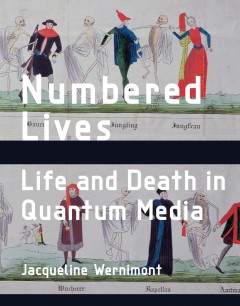
Numbered lives :life and death in quantum media
A feminist media history of quantification, uncovering the stories behind the tools and technologies we use to count, measure, and weigh our lives and realities. Anglo-American culture has used media to measure and quantify lives for centuries. Historical journal entries map the details of everyday life, while death registers put numbers to life's endings. Today we count our daily steps with fi…
- Edition
- -
- ISBN/ISSN
- 9780262350174
- Collation
- 1 online resource (240 pages).
- Series Title
- -
- Call Number
- -
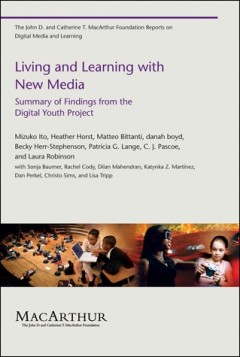
Living and Learning with New Media: Summary of Findings from the Digital Yout…
This report summarizes the results of an ambitious three-year ethnographic study, funded by the John D. and Catherine T. MacArthur Foundation, into how young people are living and learning with new media in varied settings—at home, in after school programs, and in online spaces. It offers a condensed version of a longer treatment provided in the book Hanging Out, Messing Around, and Geeking O…
- Edition
- -
- ISBN/ISSN
- 9780262258937
- Collation
- -
- Series Title
- -
- Call Number
- -
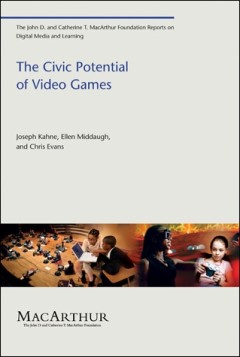
The Civic Potential of Video Games
This report focuses on the civic aspects of video game play among youth. According to a 2006 survey, 58 percent of young people aged 15 to 25 were civically "disengaged," meaning that they participated in fewer than two types of either electoral activities (defined as voting, campaigning, etc.) or civic activities (for example, volunteering). Kahne and his coauthors are interested in what role …
- Edition
- -
- ISBN/ISSN
- 9780262258975
- Collation
- -
- Series Title
- -
- Call Number
- -
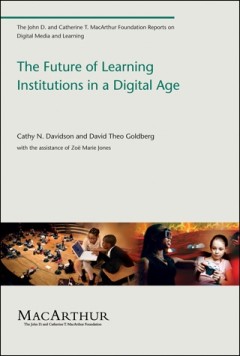
The Future of Learning Institutions in a Digital Age
In this report, Cathy Davidson and David Theo Goldberg focus on the potential for shared and interactive learning made possible by the Internet. They argue that the single most important characteristic of the Internet is its capacity for world-wide community and the limitless exchange of ideas. The Internet brings about a way of learning that is not new or revolutionary but is now the norm for …
- Edition
- -
- ISBN/ISSN
- 9780262258715
- Collation
- -
- Series Title
- -
- Call Number
- -
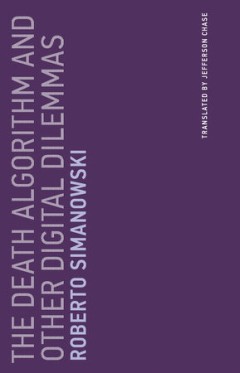
The death algorithm and other digital dilemmas
In 'The Death Algorithm and Other Digital Dilemmas', Roberto Simanowski wonders if we are on the brink of a society that views social, political, and ethical challenges as technological problems that can be fixed with the right algorithm, the best data, or the fastest computer. For example, the "death algorithm " is programmed into a driverless car to decide, in an emergency, whether to plow in…
- Edition
- -
- ISBN/ISSN
- 9780262350662
- Collation
- 1 online resource (xxxi, 174 pages).
- Series Title
- -
- Call Number
- -
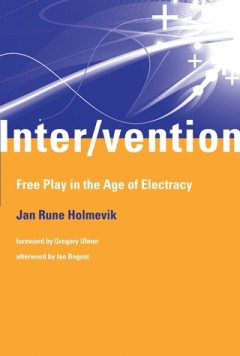
Inter/vention: Free Play in the Age of Electracy
Chiefly concerned with MMRPGs (Massively Multiplayer Role-Playing Games) and the communities that they give rise to.In today's complex digital world, we must understand new media expressions and digital experiences not simply as more technologically advanced forms of "writing" that can be understood and analyzed as "texts" but as artifacts in their own right that require a unique skill set. Jus…
- Edition
- -
- ISBN/ISSN
- 9780262301657
- Collation
- 1 online resource (xxiv, 204 pages) :illustrations
- Series Title
- -
- Call Number
- -
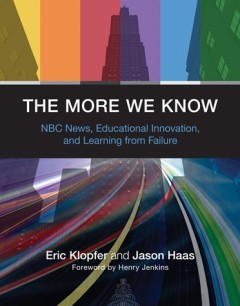
The more we know :NBC news, educational innovation, and learning from failure
"In 2006, young people were flocking to MySpace, discovering the joys of watching videos of cute animals on YouTube, and playing online games. Not many of them were watching network news on television; they got most of their information online. So when NBC and MIT launched iCue, an interactive learning venture that combined social networking, online video, and gaming in one multimedia education…
- Edition
- -
- ISBN/ISSN
- 9780262305624
- Collation
- 1 online resource (xvii, 205 pages) :illustrations
- Series Title
- -
- Call Number
- -
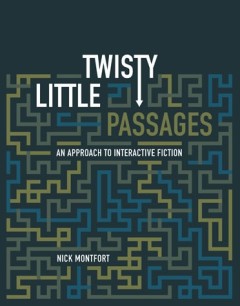
Twisty Little Passages: An Approach to Interactive Fiction
Interactive fiction--the best-known form of which is the text game or text adventure--has not received as much critical attention as have such other forms of electronic literature as hypertext fiction and the conversational programs known as chatterbots. Twisty Little Passages (the title refers to a maze in Adventure, the first interactive fiction) is the first book-length consideration of this…
- Edition
- -
- ISBN/ISSN
- 9780262297110
- Collation
- 1 online resource (xv, 286 pages)
- Series Title
- -
- Call Number
- -
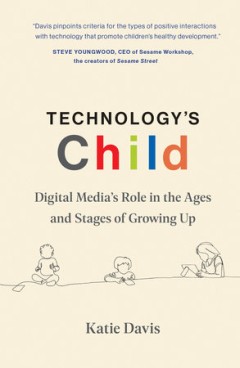
Technology's child :digital media's role in the ages and stages of growing up
"Davis addresses the "screen time" debate by recognizing that children's experiences of technology and social relationships are qualitatively distinct at different stages of development"--OCLC-licensed vendor bibliographic record.
- Edition
- -
- ISBN/ISSN
- 9780262370097
- Collation
- 1 online resource
- Series Title
- -
- Call Number
- -
 Computer Science, Information & General Works
Computer Science, Information & General Works  Philosophy & Psychology
Philosophy & Psychology  Religion
Religion  Social Sciences
Social Sciences  Language
Language  Pure Science
Pure Science  Applied Sciences
Applied Sciences  Art & Recreation
Art & Recreation  Literature
Literature  History & Geography
History & Geography